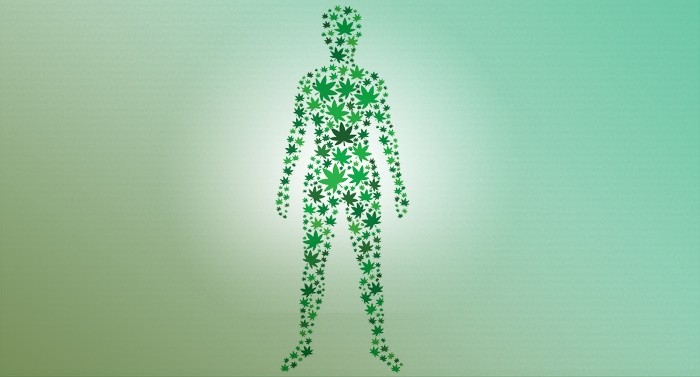Cannabis
How Cannabis Affect The System
As far as the record has it, cannabis has been one of the oldest plants used by humans for various purposes. The first record says it was first used by a Chinese Emperor Shen Nung before it was made known worldwide. It is biologically classified under the Cannabaceae family of flowering plant’s genus. It has been originally used for the production of medicinal drugs, hemp oil and it is known for its abundance provision of fiber. It can also be called hemp, marijuana (derived from cannabis) and some other names. The major chemical that provides the psychoactive effect to the human body is tetrahydrocannabinol (THC). Although, some strains of the cannabis are specially made to produce a lower quantity of THC we still find some that produce high amount for higher efficiency.
How Cannabis Is Used
In the human body, there is a ready-made substance called the endocannabinoids that helps in controlling neurotransmitters. The brain contains receptors for this substance and that is why the effect of THC is felt in the brain.
There are generally 2 ways of using cannabis, either it is smoked (vaping) or it is ingested.
Smoking: This method is considered to be the fastest way by which the human body feels the effect of cannabis. When the cannabis vapor is allowed to enter the body, the THC is allowed to flow through the bloodstream then the receptors in the brain make them work as they emulate the effect of endocannabinoids in the brain.
Ingesting: This is the second method of taking cannabis into the body system but this method is always slow because the cannabis will have to pass your digestive system before you feel its effect. Though this method will make you feel its effect longer than you would feel it if it is smoked.
EFFICACIES
As said earlier, cannabinoids (THC) is the major chemical that can be found useful in cannabis. After curing the flowers of cannabis and some other growing techniques, some cannabis can be found producing almost 35% amount of THC. Also in this cannabis, there are several compounds that can be found in it, although not psychoactive compounds, an example is cannabidiol (CBD), cannabivarin (CBV), and cannabidivarin (CBDV).
Just the way other compounds follow neurological processes, cannabis is also obedient to the same protocol of sending signal and stimulus through the neurons for biological response.
There are two receptors of cannabinoids in the body system; one is attached to the brain while the other is attached to the cells of the immune system. When you smoke cannabis, the receptor in the brain allows the cannabinoid to affect your movement and memory while the one on the immune system might cause the cannabinoid to bring about pain relief.
There is some cannabinoid that helps in eliminating half-life even more than some recreational drugs because they can be easily stored in fat (lipophilic cannabinoids).
TOXICITIES
Even though the THC – the major compound in cannabis, have been found to be very low in toxicity and cannot even cause death, it is important to know that other compounds present in cannabis can change the way other drugs in the system will react to the body (metabolism) thus leading to toxicities in the medication because the person is taking cannabis.
You may have the belief that cannabis and tobacco smoke are almost the same, well, further study has it that cannabis smoke contains 20 times ammonia, 5 times hydrogen cyanide compared to tobacco. Over 50 different types of carcinogens have been found in the smoke of cannabis, this includes powerful carcinogens that are very fast in causing cancer. The effect can bring about more danger from every wrap of cigarette you smoke because cannabis has been strongly connected to lung cancer.
EFFECTS
The effects of cannabis can be distinctively differentiated as long-term and short-term effects. We are going to see together what these effects are.
SHORT-TERM EFFECTS
After smoking cannabis or while smoking, you will only feel some of its effect within a short period of time – probably within 2 hours, differs due to type the of strain or the person smoking. Relative to smoking, the effect will start to show after an hour when you ingest cannabis and it will last more due to ingestion process.
In this case, we are going to study various ways we can feel the short-effects.
- Psychological effects: When the cannabinoid is combined with the receptor, it alters the level of some of the neurotransmitters that mostly cause euphoria and anxiety and they are the acute effects of cannabis. Although anxiety has been the most recorded side effect of cannabis, some other effects include, joviality, reduced stress, feelings of living well, increased libido, increased appreciation of music and art, reduced perception, and even creativity. A surprising fact is that while other drugs fall under each category like depressants, hallucinogens, and stimulants, cannabis is said to belong to all the categories.
- Body effects: Other than psychological effects, there are also some effects that can be quickly seen on the body. Example of these effects is dry mouth, strange feelings of the hand and feet, rested muscles, red-colored eyes, increased heart rate. When cannabis is smoked, the somatic effects can be felt under 30 minutes and will last up to 2 hours depending on how powerful the strain is or the smoker’s body. When it is ingested, the smoker might feel the effect after an hour and can last up to 8 hours.
- Cardiovascular effects: Cannabis smokers also experience side effects on their great and blood vessels. Some side effects which may last up to 2 hours can include unstable blood pressure, enlarged blood vessels, and faster heart rate. Cannabis doesn’t cause many cardiovascular problems for young and healthy smokers, but for aged people, it poses a greater risk when the cardiovascular systems experience increased workload and can cause low blood pressure, and myocardial infarction (heart attack).
- Effect on appetite: Scientific studies on the effect of cannabis on appetite have claimed that cannabis increases the feeling of wanting more food and its enjoyment. Cannabinoid receptors that are responsible for regulating the intake of food react with endocannabinoids. These same receptors work for babies that are still on breasts as it helps in regulating how often the babies want to be breastfed. When cannabis is smoked, it has the potential ability to affect the receptors thus making humans crave for more food.
- Effect on memory: The short-term effects of cannabis on memories are not always a very serious issue; it comes when the cannabinoids bind with the receptors of the hippocampus. Studies have revealed that only chronic and heavy marijuana smokers tend to have difficulties in remembering things and also creating new memories when they smoke. The effect is said to last for about 10 to 14 days after a heavy use of marijuana and can always be reversed if the smoker can stop smoking for 25 days or a month. The long-term cannabis users will only have some defects in their verbal memories (learning) but it cannot be felt because it is of a very small magnitude.
- Bacteria, pathogens from strains: When the strain you are smoking is not well preserved and stored, some harmful pathogens can proliferate and cause potential danger to health. Fungi have been found in moldy cannabis and it infects the lungs when you smoke it consequently causing aspergillosis. It is a preventive measure to store cannabis in an airtight bag and refrigerate it to prevent the growth of fungi and bacteria.
Long-Term Effects
Marijuana doesn’t really have long-term effects on the human body, unlike the short-term effects. But there are permanent diseases cannabis could cause to the human system and they pose a real threat to life. Some of these diseases are liver diseases, lungs diseases, and heart diseases.
Some other effects of cannabis which could be considered long-term or permanent are its effect on pregnancies. When a pregnant lady takes cannabis, it restricts the development of the fetus and can cause miscarriage. But the major and permanent effect on this study is that the baby might be exposed to a long-lasting harm on the memory.
Another long-term effect which could be added is the risk of getting addicted to cannabis. Although, matured smokers might be able to withdraw from it. When it starts from adolescence, it is always uneasy to control it and getting addicted is inevitable.
CONCLUSION
We have talked about both the good and the bad and I know you can now see what smoking cannabis means. As it is capable of being beneficial to your health and also gives sweet feelings, it is also able to destroy health if proper care is not taken. There are certain things that you should consider not doing when you smoke weed, some of them are, avoiding restless night, avoiding hunger, and do not drive. Although it is illegal in some states and allowed as a recreational drug in other states, it is important to know how you still smoke and learn to live a healthy life with it.


